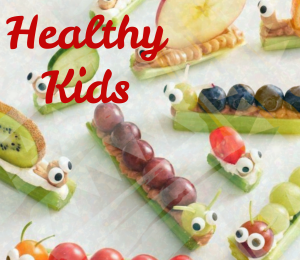Children are naturally very energetic. Some days, as parents, we are so tired yet watch out children bounce around with what seems like endless amount of energy. I mean can they bottle and sell these energy supplements (kidding!)? They get excited and are almost always full of life, although as parents we know that most times, this is just part of being a child. It may also be common for you to have to tell your child to calm down or stay still. In this blog post, we mention some tips we rounded up to help naturally calm your child’s hyperactivity.
Note: This content is not intended to be a substitute for professional medical advice, diagnosis or treatment. Always seek the advice of a medical doctor before making decisions.
Exercise:
Exercise needs to be in the schedule of any child’s day. If your child seems hyperactive, make sure that exercising is the top priority. Kids should get a minimum of an hours playtime a day. Also, don’t push your child to do something he/she doesn’t like to do since this can promote more restlessness.
If you prefer staying with your child when they exercise, walking or hiking is always a good idea. Maybe teach time to ride a bicycle in the front yard? This is such a great opportunity for parent kid time too!
There are plenty of options when it comes to your child’s exercise. Most famous of them being bicycling, swimming, gymnastics, skating among a vast array of activities. This will not only keep your child physically fit but also helps them burn off the extra energy they have. Consider looking at your local school and rec center for additional activities to sign your kids up for at minimal pricing, such as soccer, ball, dance, etc.
Exercising also helps children with falling and staying asleep. Exercising also help your child get uninterrupted sleep, which makes the mornings much more comfortable since they are feeling refreshed and not groggy. Plus, for adults, they say exercise is even more effective than caffeine, so join in!
Plan the day:
Keeping things predictable for kids is essential. Meaning, they should be generally aware of the time they eat, play and sleep (and do homework). Your child’s schedule for the day must be decided ahead of time. This helps them curb their restlessness and look forward to activities throughout the day. Having them write and display their schedule, too, gives them a sense of ownership.
Sleep:
Have you ever thought to yourself, how much sleep do kids need? Children need at least 10 hours of sleep at night, this is the bare minimum and it varies based on their age.
Between ages one and two 11-14 hours
Between ages three and five 10 to 13 hours
Between ages six and thirteen 11 hours of sleep
Make sure that your child goes to bed at a reasonable hour and that screen use is limited, or better yet ceased entirely one hour before bedtime since screens are known to disrupt sleep patterns. Having a calming bedtime routine helps too, especially when it’s predictable.
Sleeping with a weighted blanket helps since it feels cozy, firm and gentle, which is like recreating a hug. It also helps reduce anxiety and helps calm your child while improving sleep quality.
Sometimes noise and activity in your home can make it hard for your child to fall asleep. So keeping the atmosphere as calm as possible at bedtime is very comforting to the child. For more details, check out how much sleep kids need here.
Diet and Nutrition:

Healthy body, healthy mind, right?
The body treats you the way you handle it, in that, if your child eats food that is not necessarily nutritious in nature or eats junk food often, it is quite possible that changes in your child’s diet may also change their impulsiveness. Regardless, studies show that eating processed food is a cause for health issues. Eating a clean diet will definitely do good for your child.
There is no need to be rigorous, but here is a small list of things that your child should definitely avoid:
Too much sodium – salt is needed by the body to perform its best. However, too much sodium in the form of a salt or other food like pizza, burritos, bacon, sausages and the like promote restlessness in adults and children alike.
- MSG – Monosodium glutamate is a flavor enhancer that is added to many foods, which include- salad dressing, rice mixes, and baby food. Check ingredient lists.
- Caffeine – Caffeine is a big no-no for any child, hyperactive or not. This is because caffeine has an addictive quality and it triggers the fight or flight response. This promotes nervousness, anxiety, and impulsiveness.
- Sugar – Too much sugar can result in energy crashes and problems with memory and focus. It amplifies hyperactivity in children. Choose natural occurring sugars instead.
- Artificial Sweeteners – Some studies link artificial sweeteners with interference in cognitive functions and emotions. Avoid at all costs.
- Food Dyes and Colors – There have been countless studies that show that Red40 (most widely used and consumed artificial dye) and other artificial color additives cause hyperactivity and other health problems. Opt for naturally derived food colors instead.
However, eating a healthy and well-balanced diet with loads of fresh fruits, vegetables, and grains can benefit both children and adults. The earlier you start healthy habits, the better. Check out some healthy kid snack ideas here.
Learning new skills
Every child has different interests. If your child always talks about how cool she thinks a guitar is, or his eyes twinkle whenever he watches a Bruce Lee movie, as a parent, you should consider these pointers seriously and help the child take up his or her interests, because this is how they grow.
Contrary to popular culture, physical skills are not the only skills that a child may wish to possess. They may be interested in Science, Chess or Computers. It is wrong to push your child to do something they don’t like, even if your idea of their interests is different than what you thought they would be.
It is even worse to flat out ignore these interests since when someone is a child, their mind is like a sponge and their ideas of growth are to blossom as a singer or dance in the ring with Rocky Balboa. This is something to be proud of.
If you want your child to grow to their fullest potential, it is best to observe these pointers and encourage your child to try new things. This ideology not only will help them prosper in the long run and learn new things, but it will also help them find the release valve for their emotions, which is a skill that is very important to determine in the journey of life. In the short-term, it is beneficial in using up their energy and benefiting from it at the same time.
Herbal medicines and other supplements:
We don’t know much about herbal medicine other than they provide substantial health benefits. Clinical tests have found herbal treatments to be effective in calming and toning the mind and body, and if you’re pro-mother nature, it is definitely worth trying. These include:
Ginseng: This herb helps alleviate hyperactivity and inattentiveness.
Ningdong: A Chinese medicine that helps to decrease some ADHD symptoms.
Bacopa: This is a herb of Indian origin, included in what is called the Ayurvedic treatment and is derived from a plant which is also known as Brahmi. Studies suggest it might reduce restlessness and improve self-control.
Vitamins and minerals play an essential role in every human beings life. It is vital that your child too have a reasonable amount of vitamins regardless of how you help your child’s body stay stocked on vitamins, be it by eating vitamin-rich foods or taking supplements.
What to look for
Speaking of supplements, these are available in abundance wherever you go and will help your child be healthier in the long run. You should ask your local pharmacy about –
- Vitamin B6 and Magnesium: The B vitamins are essential for a healthy nervous system. Vitamin B6 is especially important for children since it helps in the regulation and production of chemicals like serotonin and dopamine. Magnesium and vitamin B6 are also connected to the bodies metabolism. If magnesium levels are low in the body, this can cause problems such as reduced attention span and irritability. A deficiency in vitamin B6 might result in poor memory, trouble concentrating, and increased activity.
- Vitamin C: Vitamin C is involved in a diverse set of functions required to make neurotransmitters.
- Zinc: Zinc regulates dopamine in the body. If your child has low levels of Zinc, it may contribute to attention issues.
- Iron: Iron is needed to make dopamine. Low iron levels have been associated with attention disorders’ symptoms.
- Omega 3’s: These help little brains develop, add them to your list!
It is advised that you see your family GP if your child is excessively impulsive. It is definitely not recommended to self-prescribe without a professionals advice, especially if you’re trying to treat a child.
Note: This content is not intended to be a substitute for professional medical advice, diagnosis or treatment. Always seek the advice of a medical doctor before making decisions.
- Benefits of Weighted Blanket Therapy: How & Why? - July 29, 2021
- 20 Non Candy Easter Basket Filler Gift Play Ideas for Easter 2020 - March 2, 2020
- Top Tips for Toddler Road Trips & Flight Ideas - October 27, 2019

